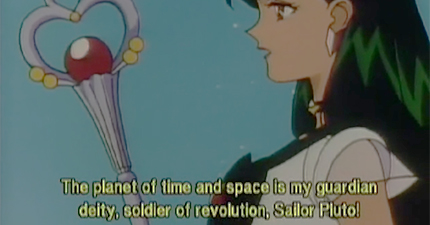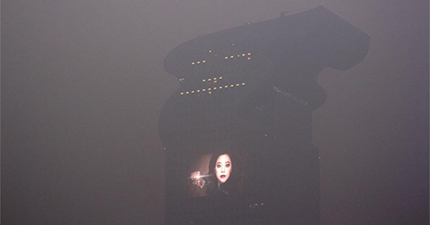Early in the quarantine, I wrote a love story and posted it on my AO3 account. The story, which is a BTS fanfiction, is a story where one character visits his hometown, which is located in the developing world. That character is living in the West and works for an environmental agency that performs good activism but actually exploits the third world. In the story, another character is a piece of the corrupt politics within the hometown. The characters only spend a month together but they grow a lot during that time. Neither of the characters were politically or morally perfect—both are in positions where they profit from neocolonialism and both experience a lot of self hatred as a result. Both were raised in situations where they were not protected and are given the opportunity to treat each other badly, as enemies. Both make the decision to trust each other.
They don’t end up together.
I felt strongly from the beginning that the story could not be a happily ever after kind of love story. I felt that I made it obvious that this was not a story that was about the happily ever after. This was a story about how the first world continues to export its toxic waste to developing nations and about how the environmental catastrophe and death that imperialists distribute towards the colonies is such an overwhelmingly huge institution that it’s almost impossible to think around it, much less act against it. In the story, I write about high rates of cancer and describe the tragedy of colonialism. I made it very obvious that the saddest thing in the story would not be the fact that the characters don’t end up together. I explain, very clearly, that it is actually impossible for them to end up together because the character who left for the West had to give up his non-Western self a long time ago. The reasons why the characters don’t end up together is rooted in geographical distance and geopolitical power relations.
I wrote the story for bipoc—especially bipoc in the diaspora who left the versions of themselves that their grandparents and aunties and uncles knew to become someone else. I wrote it for people who understand that the cultural centers of power that we capitalize on in the West distribute death elsewhere because we see the effects of this death distribution right there in our family relations. I wrote it for people whose giving up of love was foundational to their identity formation.
And bipoc armies read the fic. They commented and related and talked about how they saw their families in the story. They talked about how frustrated they were at the way geopolitical power robs from them and about the complexities involved in neocolonialism.
And what I will assume to be white armies, because these are armies who don’t name their identities, also commented. I guess that they are white because of behavior. These armies were very angry that the love story did not end in a happily ever after, that the characters were not able to be together, and they said that they felt as though I tricked them into reading something. Sometimes, they expressed this anger outright and, other times, they used more passive aggressive tactics in attempts to make me feel bad about not delivering to them the story that they wanted. They said that they were too “soft hearted” for this kind of ending.
Seriously? You’re too “soft hearted” to read one love story out of millions that doesn’t end in a happily ever after but not too “soft hearted” to read the descriptions of the death that results from imperialism in the beginning of my story? Really? You were “tricked” into reading a story about neocolonialism, which is something that poisons the waters of entire towns and results in mass death? You didn’t bat an eye at poverty as the systemic precursor to famine but you can’t handle it when two characters implicated into this power relation don’t choose to perpetuate a monogamous, eternal, individualistic relationship?
White culture loves to fetishize poverty. It sees nothing sad about it. White people fetishize poverty for its racialization. For white culture, poverty is only an aesthetic that must contribute to the story’s overall goal of satisfying white longings for the racial other. The idea that love will conquer all, bridge all gaps, and unify everyone is a part of this culture that prioritizes stories about romantic sexual love over all other stories.
When I didn’t make my story a happily ever after, I expressed the futility of romantic sexual love. I took away the racialized object, which was the character who lives and stays in the third world, for both the POV character and the reader. Because bipoc are used to dealing with family departures and used to dealing with culture that has left us or that we have left, we understand the sadness. Because white readers are not used to having their racial objects being taken away and want to continue to believe that romantic sexual love is the pinnacle of emotional expression, they expressed feelings of rage towards me. While the white readers saw themselves as soft and wounded, they actually affected their surroundings through expressions of rage.
“You must be really sad to write something like this,” “You should have tagged this as a sad ending so those who don’t want that don’t read it,” and “You can’t be serious, you ruined my day with the ending and now I can’t study for my test” were some of the responses that I got. All these responses are because my story ended in a way where two characters involved in intricate exchanges of geopolitical power decided that it’s better to protect their hometown than to end up together. None of these responses resulted from the world that was described, which is a world where the West was actively killing masses of third world people.
It made me think a lot about what we have empathy for. White people are told that they are soft hearted and, identifying with that suggestion, they feel that they are incapable of tolerating a story where romantic sexual love is not successful. White people are taught to call their fetishization empathy. They’re taught that their saviorism is heroic. They’re taught that the only pure relation is desire and that white desire elevates racialized people.
It isn’t just that white culture teaches us to prioritize individuals over groups or that it’s easier to have empathy for people who look like us who we can project ourselves into. Maybe all those things are true but I don’t think they’re as powerful as people say they are. I think that it’s possible to feel sadness towards violence done to people who don’t look like us. I think that there is something fundamentally at the root of white culture that conflates empathy with desire and, as a result, it is hard for white people and bipoc who have learned whiteness to feel empathy for things that we cannot romanticize or sexualize. Things that we cannot romanticize or sexualize include larger population graphs that show the ways in which death is distributed within neoliberalism—it includes people who are geographically distant to us and people who are not depicted through images. Fetishization as empathy means that we are only able to empathize when it benefits us and that we locate neocolonialism in hypervisible, isolated wounds rather than in the totality of its structure.
1 of 157
>>>


